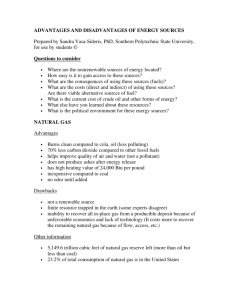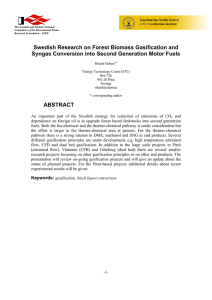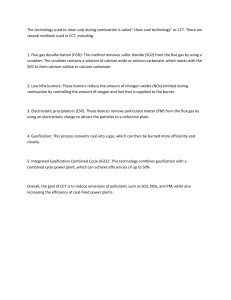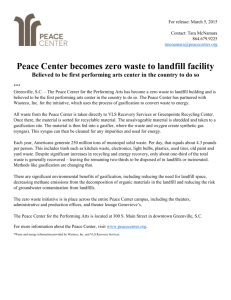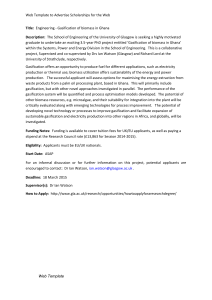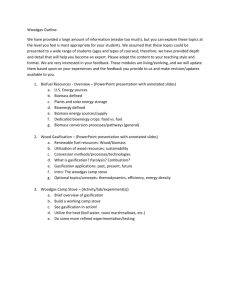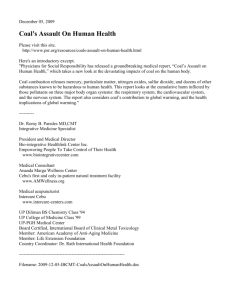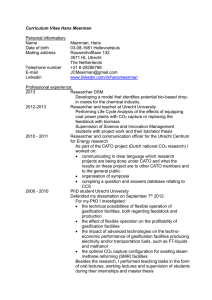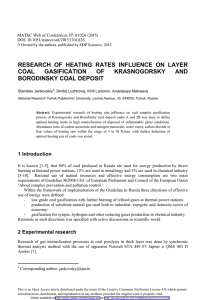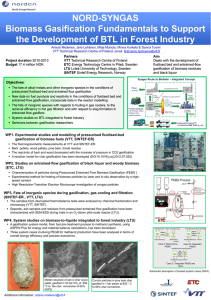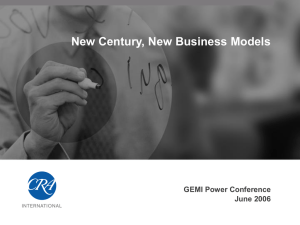CU Boulder News and Events, CO 01-24-07
advertisement
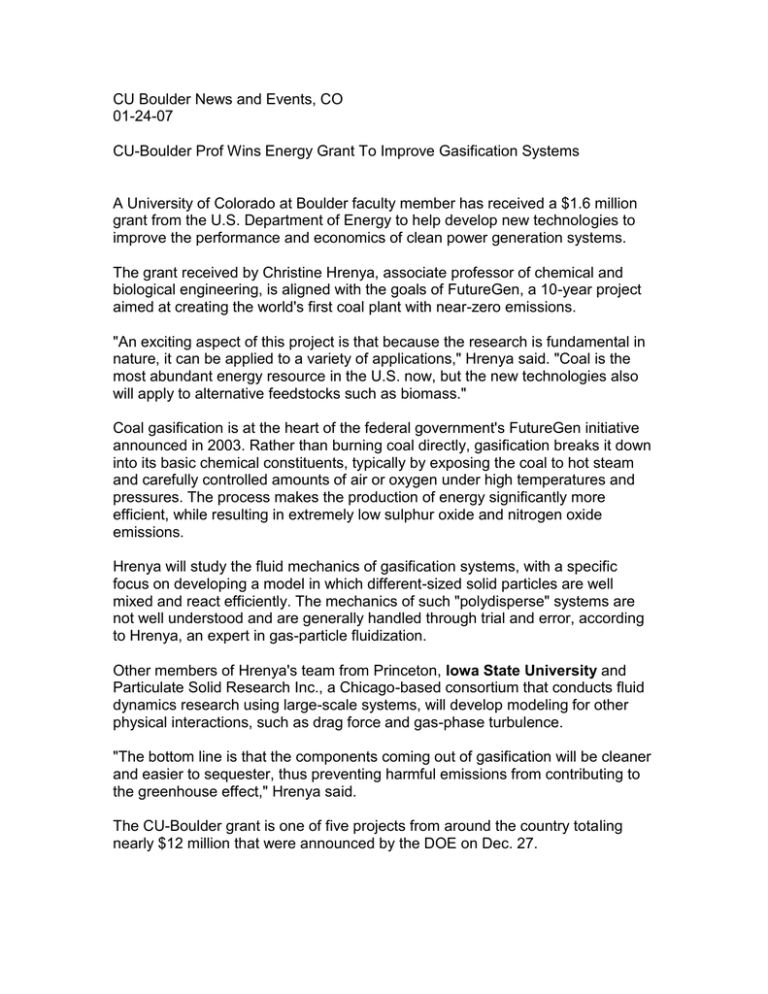
CU Boulder News and Events, CO 01-24-07 CU-Boulder Prof Wins Energy Grant To Improve Gasification Systems A University of Colorado at Boulder faculty member has received a $1.6 million grant from the U.S. Department of Energy to help develop new technologies to improve the performance and economics of clean power generation systems. The grant received by Christine Hrenya, associate professor of chemical and biological engineering, is aligned with the goals of FutureGen, a 10-year project aimed at creating the world's first coal plant with near-zero emissions. "An exciting aspect of this project is that because the research is fundamental in nature, it can be applied to a variety of applications," Hrenya said. "Coal is the most abundant energy resource in the U.S. now, but the new technologies also will apply to alternative feedstocks such as biomass." Coal gasification is at the heart of the federal government's FutureGen initiative announced in 2003. Rather than burning coal directly, gasification breaks it down into its basic chemical constituents, typically by exposing the coal to hot steam and carefully controlled amounts of air or oxygen under high temperatures and pressures. The process makes the production of energy significantly more efficient, while resulting in extremely low sulphur oxide and nitrogen oxide emissions. Hrenya will study the fluid mechanics of gasification systems, with a specific focus on developing a model in which different-sized solid particles are well mixed and react efficiently. The mechanics of such "polydisperse" systems are not well understood and are generally handled through trial and error, according to Hrenya, an expert in gas-particle fluidization. Other members of Hrenya's team from Princeton, Iowa State University and Particulate Solid Research Inc., a Chicago-based consortium that conducts fluid dynamics research using large-scale systems, will develop modeling for other physical interactions, such as drag force and gas-phase turbulence. "The bottom line is that the components coming out of gasification will be cleaner and easier to sequester, thus preventing harmful emissions from contributing to the greenhouse effect," Hrenya said. The CU-Boulder grant is one of five projects from around the country totaling nearly $12 million that were announced by the DOE on Dec. 27.
